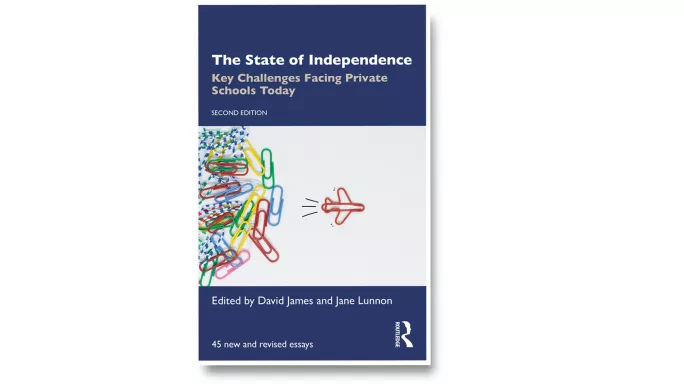
- Home
- Analysis
- Specialist Sector
- Why Covid hasn’t halted international school expansion
Why Covid hasn’t halted international school expansion

The pandemic has undoubtedly had an effect on the growth of international education, while tighter regulation of international schools in China and Hong Kong has led to greater caution on the part of UK schools with ambitions in East Asia.
The war in Ukraine has also reminded us that global geopolitical stability can never be taken for granted. Paradoxically, however, a growing number of UK schools are considering an international project as part of their post-pandemic strategic planning.
With good reason. Although the sheen has come off China, which has been the engine room of British international growth, the underlying conditions generating demand for private education in a range of countries with a demographically youthful profile and a rising, globally aware middle class remain substantially positive.
Despite everything, according to ISC Research, the number of international schools grew once again in 2020, 2021 and 2022.
Emerging trends in a changing market
Finding the right opportunity is not - and never has been - an easy business.
Boards need to discuss the relevant issues and go in with their eyes open, but the global demand for an education in English - and for a British education in particular - remains strong. There is also growing interest in the establishment of international boarding schools, often associated with niche specialist academies (think golf and winter sports).
The emergence of novel centres of learning such as city-centre and suburban learning hubs or community enrichment centres for children of all ages may provide opportunities for high-quality medium- and low-cost education for many children.
One model being discussed embeds such a low-cost hub in a more traditional “premium” level school.
The development of digital and blended learning approaches to education is profoundly affecting the way in which international schools are evolving and will be of central importance in the establishment of new partner schools.
Online learning combined with setting up schools as community centres is an exciting prospect, as edtech heavyweights King’s InterHigh and Education in Motion, the parent company of Dulwich College International, understand only too well.
Being prepared for the right opportunity
In a world in which the effects of the pandemic are still playing out and the impact of the Ukraine war continues to ripple outwards, should UK schools really be considering an overseas initiative?
At the very least, being properly informed about the sector seems sensible, as the market is real and is likely to grow.
If a UK school plans carefully, budgets wisely for a partner search and builds an understanding of the sector, there has, perhaps, never been a more exciting, if challenging, time to explore the field.
A search for the right opportunity can be frustrating, as many will attest. However, missing openings - which can and do arise unexpectedly, simply because the school is not well prepared or the opening is not understood - leads to just as many expressions of regret at a significant opportunity missed.
If not China, where?
With China no longer the default destination, where? One indicator comes from Sir Steve Smith, former vice-chancellor of the University of Exeter and the UK government’s International Education Champion since 2020.
When addressing the conference of the Council of British International Schools (Cobis) in May 2021 on the subject of the government’s International Education Strategy, he gave a list of five priority countries for educational initiatives: Vietnam, India, Nigeria, Saudi Arabia and Indonesia.
His B-list included Mexico and Brazil. None is without its challenges, but all represent real opportunities. While a difficult market to enter, Japan is attracting attention. Sir Steve has pledged full support from the Department for International Trade (DIT) and the Department for Education (DfE) for independent schools that wish to establish new schools.
There are good reasons for this, given that the value of transnational education (TNE) to British schools was approximately £1.26 billion in 2018. £1 billion of this came from boarding in the UK, but the balance involved the comparatively few partner schools overseas. Sir Steve, for one, would like to see that balance grow.
Preparing a value proposition
What will offer the best chance of success in an international venture? Knowing what you have to offer a potential partner is essential.
This will be different from the traditional account of the school’s strengths designed for a parental audience in the UK. Raising the school’s online profile for a business audience and presenting an international value proposition in a digital, mobile-friendly manner is common sense.
A school will need to know which opportunities sound alarm bells and which feel good. Just understanding the stages of an international strategy, from developing a knowledge of the sector, writing the school’s international offer, conducting a partner search and embarking on the final stage of building, gives a greater sense of confidence.
In other words, despite the changes in the international scene over the past two years, the fundamental requirements for entering the field successfully remain: a well-planned strategy with a clear purpose and the right value proposition to find the right partner in the right location.
Andy Homden and Paul Cabrelli founded Consilium Education in 2014 after lifelong careers as international teachers and school leaders
The above is an edited extract from The State of Independence, second edition, published by Routledge. Tes readers can receive 20 per cent off by using the code TES, valid until 31 March 2023

You need a Tes subscription to read this article
Subscribe now to read this article and get other subscriber-only content:
- Unlimited access to all Tes magazine content
- Exclusive subscriber-only stories
- Award-winning email newsletters
- Unlimited access to all Tes magazine content
- Exclusive subscriber-only stories
- Award-winning email newsletters
You need a subscription to read this article
Subscribe now to read this article and get other subscriber-only content, including:
- Unlimited access to all Tes magazine content
- Exclusive subscriber-only stories
- Award-winning email newsletters
- Unlimited access to all Tes magazine content
- Exclusive subscriber-only stories
- Award-winning email newsletters
topics in this article



